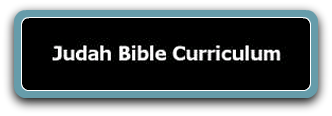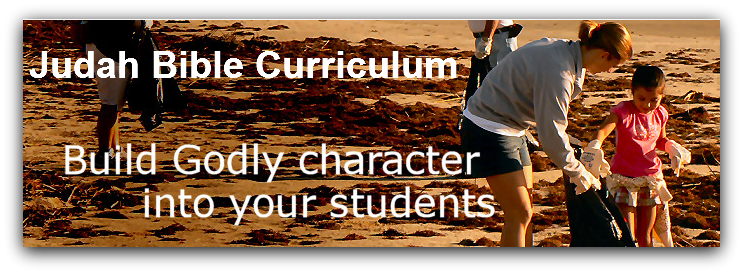We homeschool for many reasons, not the least of which is that God and the Bible have been almost completely taken out of many public schools. Is that a problem just because we want our children to learn about the Bible, or is it more foundational than that? Do we teach Bible as one of many subjects in our homeschool, or do we teach all of our subjects according to how they relate to the Bible and our faith? This is a personal decision each of us must make for our family.
The goal of the Judah Bible Curriculum is to help you produce Godly character in yourself and your students by making the Bible the centerpiece of a Christian education. It uses the Principle Approach, which is defined by The Foundation For American Christian Education (FACE) as:
"reflective teaching and learning.” It is America’s historic method of Biblical reasoning which places the Truths (or principles) of God’s Word at the heart of education. Each subject is predicated upon God’s Biblical principles and students are taught to think and reason from principles and leading ideas using The Notebook Method to Research, Reason, Relate and Record.The Judah Bible Curriculum does not use a specific curriculum or textbook, but gives guidelines and examples. The only textbook is the Bible. The plan is that you will study the whole Bible with your students (key events and stories, not every prophecy and genealogy) once each year for five years, studying five key themes running through the Scriptures. Each year you will focus on a different theme while studying the same Scriptures. You may do this with multiple grades all together, and older children will of course generally understand more and go into deeper discussion of the themes. Each child may keep a notebook at his or her own level. The reading and discussion begins as teacher-led, but the system gradually teaches children to think and study and research on their own.
For this review, I received a downloadable JBC Manual, a downloadable book of Notebooking Ideas, and eight Audio Lectures in mp3 form. The Lectures are more for the teacher than for the student. If you have not done this kind of teaching or studied the Bible much yourself, you may find these very helpful. If you have done Bible study and teaching for years, you may find that you already know most of this information, and the lectures are a bit dry. Use or don't use them in as much as they are helpful to you. The Notebooking Ideas are geared toward elementary students who aren't quite ready for the Key Sheets given on the website and in the manual, and they contain some very helpful ideas. The JBC Manual is the general outline for the course. It contains outlines on what to cover each week and explains the method of The Principle Approach. It discusses concepts like Christian Self-Government and true Liberty as opposed to Anarchy. It goes through each of the themes, how to teach them, what questions to ask, Scripture Memory verses to use, how to fill out the Key Sheets, and how to apply what we have learned. It gives historical context for the sections and some outside resources. You could work your history and other subjects right into this curriculum.
What it is: Judah Bible Curriculum, hard copy or download
Where to get it: http://judahbible.com (to purchase click here)
Price: $69 hard copy (plus $5 S&H); $44 download
Ages: All ages
There are pros and cons to the Judah Bible Curriculum. Overall, I do like it. I love the whole idea of The Principle Approach, of building Godly character in students, and of teaching them how to study the Bible rather than just having them fill in a bunch of blanks. The outlines, Key Sheets, and other helps offer good direction for this type of study. The price is fantastic - a 5-year study for all of your kids together for only $44! I like the fact that the curriculum does not require one particular Bible translation or push any specific denominational doctrine. The program does work well for several ages studying together. Here is my 6-year-old reading out loud out of his own "Bible" (Bible storybook), while the other kids have their Bibles. He was very proud to be part of the discussion!
The cons are that the program is very time-consuming and requires a great deal of teacher preparation. Some parts are difficult to understand and not user-friendly. I will probably continue to use this program as a supplement for a while, but I do not know that we will do the whole 5-year-plan.
If you are looking for a comprehensive guide to help you work through the entire Bible with your children and to use this as the foundation for all your coursework, the Judah Bible Curriculum may be just what you are looking for. If you are not looking for something not quite so comprehensive, you may still find that this is a fair price for the help you would get from the outlines and notebooking helps that are included.
To see what my fellow Crew members thought of The Judah Bible Curriculum, click here.
Disclaimer: I received a free download of the Judah Bible Curriculum in exchange for a fair review. All opinions are my own, and no other compensation was received.




No comments:
Post a Comment